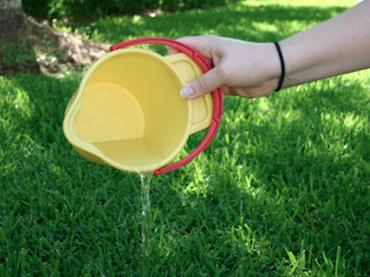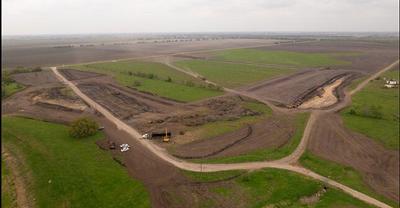- Sections :
- Crime & Public Safety
- Restaurants & Food
- Sports
- More
Township urges residents to 'Drain After Rain' to prevent mosquitoes

THE WOODLANDS, Texas – To reduce mosquitoes after recent rains, The Woodlands Township urges residents to check their yards for standing water and to empty containers to reduce mosquito breeding sites. The Texas Department of State Health Services has identified high levels of West Nile virus in samples of mosquitoes collected in The Woodlands area, although no human cases of the disease have been reported in Montgomery County at this time.
Standing water is an open invitation for female mosquitoes to lay eggs. Drain after rain is a simple, yet critical task for homeowners to reduce mosquito populations and mosquito-borne disease, according to Lynne Aldrich, manager of environmental services for the Township.
“We urge everyone to inspect their yards and dump out water from household containers or anything that can hold even the smallest amount of water, such as buckets, toys, birdbaths, plant saucers and yard art,” she said. Water can also accumulate on spa covers, inside meter boxes, in rain gutters and around downspouts. Areas of standing water that cannot be drained should be treated with mosquito dunks or bits available at home and garden centers. The products contain bti, a biological larvicide that does not harm people, pets or fish.
Irrigation systems should not be running during and for at least seven days following heavy downpours.
“An inch of water a week is best for lawn and landscape according to the turf experts at Texas Agrilife Extension,” Ms. Aldrich noted. Run-off from overwatering remains a major factor in the proliferation of mosquitoes in the community. Irrigation systems that do not have an operating rain sensor should be turned to manual control so the landscape is watered only when needed and no more than twice a week.
Mosquitoes are very active this summer. Ample breeding sites coupled with warm temperatures accelerate the development of mosquitoes from egg to larvae to biting adult. Eliminating mosquitoes before they fly is the most effective way to stop the insect.
“When neighbors work together to control breeding sites,” she said, “we have the most success in reducing disease-carrying mosquitoes.”
When mosquitoes become a problem, the Township reminds residents to think WET: Wear repellent; Eliminate breeding sites; Treat where you cannot drain, and always drain after rain.
The Township provides surveillance and public education, but does not apply biological controls or chemical treatments.
The Counties apply biological controls and/or chemical treatments accordingly to their respective programs: Montgomery County Precinct 4 sprays about every six weeks throughout the Precinct and responds to specific sites when notified; Precinct 2 responds to specific areas when notified; Precinct 3 responds to specific areas; Harris County conducts a protocol of spraying three times per week in areas with positive WN pools. Harris County posts a schedule of treatment plans and schedules at www.hcphes.org/hcmosquitoctrl/SprayPlanInfoMaps/aspimdefault2014.html.
Spraying has been proven to not be as effective in The Woodlands because heavy vegetation and privacy fences keep the pesticide hanging in the street instead of drifting into backyards where most mosquitoes rest. In addition, for spraying to be effective, wind speeds have to be just right. Too high and the pesticide dissipates too quickly to provide a lethal dose; too low and the pesticide sits in the street and chases mosquitoes into backyards. We generally have very little wind here.
Just like overuse of antibiotics creates resistant bacteria, overuse of pesticide creates pesticide-resistant mosquitoes. According to the Texas Department of State Health Services (TDSHS) and the Texas Mosquito Control Association (TMCA), “The safest most effective mosquito control targets mosquitoes before they fly! The reduction, elimination or treatment of mosquito breeding areas is the best and most cost effective technique for mosquito control.”
Remember these facts about West Nile Virus from TDSHS:
Very few mosquitoes actually carry West Nile Virus.
Human illness from West Nile virus is rare.
Less than one percent of those bitten by a mosquito will become severely ill.
The elderly and those with impaired immune systems are most susceptible.
75 percent of human cases are in people who never wear mosquito repellent.
How can you enjoy the outdoors?
Work with your neighbors to eliminate breeding sites in your neighborhood.
Avoid being outside between dusk and dawn when disease-carrying mosquitoes are active.
Wear long, loose, light-colored clothing.
Use repellent.
An oscillating fan can be very effective at keeping mosquitoes away when you sit outside.
Neighborhood and community groups can request a presentation on how to work together to dramatically reduce mosquitoes, and residents can schedule trapping and surveillance.
For more information, visit www.thewoodlandstownship-tx.gov/mosquitoinfo or call The Woodlands Township Environmental Services office at 281-210-3800.

















